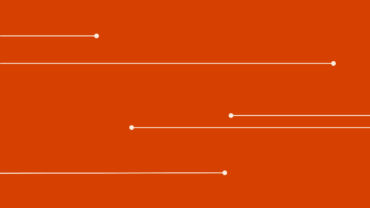If your company is urgently trying to understand the new Superfund US Federal Excise and Hazardous Substance Tax regulations and the impact on the organization, there is a short window to prepare and comply.
What is Superfund?
After more than 25 years, excise taxes on a specified list of chemicals and imported hazardous substances in the U.S. have been reinstated through the passing of the Infrastructure Investment and Jobs Act signed into law on November 15, 2021. The excise taxes, effective July 1, 2022, and the complexities around how they are levied pose serious challenges for companies that import, manufacture, produce, sell, or use any of the 42 taxable chemicals, and 150 listed substances, identified in IRS Notice 2021-66.
Who is affected by Superfund and what are their challenges?
The newly reinstated excise tax compliance obligations can be expected to create significant challenges across multiple functional areas of a company including Procurement, Finance, Tax, Environmental Regulatory Departments, and Information Technology. Companies have been given a short window to understand their responsibilities, properly manage these new obligations, and understand the impact on their bottom line.
Challenges created by Superfund for business tax and IT professionals
|
|
|
|
|
|
|
|
|
As a result, this puts pressure on the ERP systems, purchasing systems, or other existing operational support systems, to deliver accurate, repeatable, predictable, and consistent excise tax determination results. This in turn leads to an increased burden on IT, Finance and Tax, to either keep the tax content up to date, or to reconcile the inaccuracies during the file preparation and remittance process. And finally, this situation is exacerbated by a lack of compliance process automation (i.e., additional human errors through manual workarounds that add to the effort required to fix compliance errors before the return is finally filed).
Complying with Superfund through automation
Regardless of your corporation’s reach of operations ONESOURCE Determination gives you the power, flexibility, and intelligence you need for even the most complex transactions enabling you to calculate correct tax for Superfund Excise Taxes in milliseconds. Effortlessly navigate the ever-changing tax landscape by letting our tax research team monitor these evolving regulations and automatically update your systems at no down-time or cost to you and your teams.
KPMG and Thomson Reuters give companies the insights and tools they need to quickly assess and comply with the newly reinstated Superfund Excise Tax laws, minimizing the risk of non-compliance costs to the business.
By meeting with KPMG and Thomson Reuters, companies will be able to proactively:
- Assess the needs and requirements of their business
- Implement the right processes and supporting technology
- Ensure end-to-end compliance
“ONESOURCE Determination gives companies the ability to quickly comply with Superfund Excise and Hazardous Substance taxes by automatically and accurately calculating the amount of excise tax owed. We’re excited to partner with Thomson Reuters to mutually help customers address these impending compliance challenges.” Robert Kleppel, Partner, State and Local Tax, KPMG
To be contacted by a Thomson Reuters Representative, fill out the following contact form. For more information, contact Robert Kleppel (rkleppel@kpmg.com) or Taylor Cortright. (tcortright@kpmg.com).
Superfund Excise Tax and Hazardous Substance Tax Resources:
- IRS Notice 2021-66: Superfund; Initial List of Taxable Substances; Registration; Procedural Rules; Request for Comments; Suspension of Notice 89-61
- ONESOURCE Determination for Superfund Excise Taxes Video Demonstration
- For full list of chemicals and substances: Superfund Excise Tax Substance List
- Listen to our recent Superfund podcast. Superfund – Are you ready?












